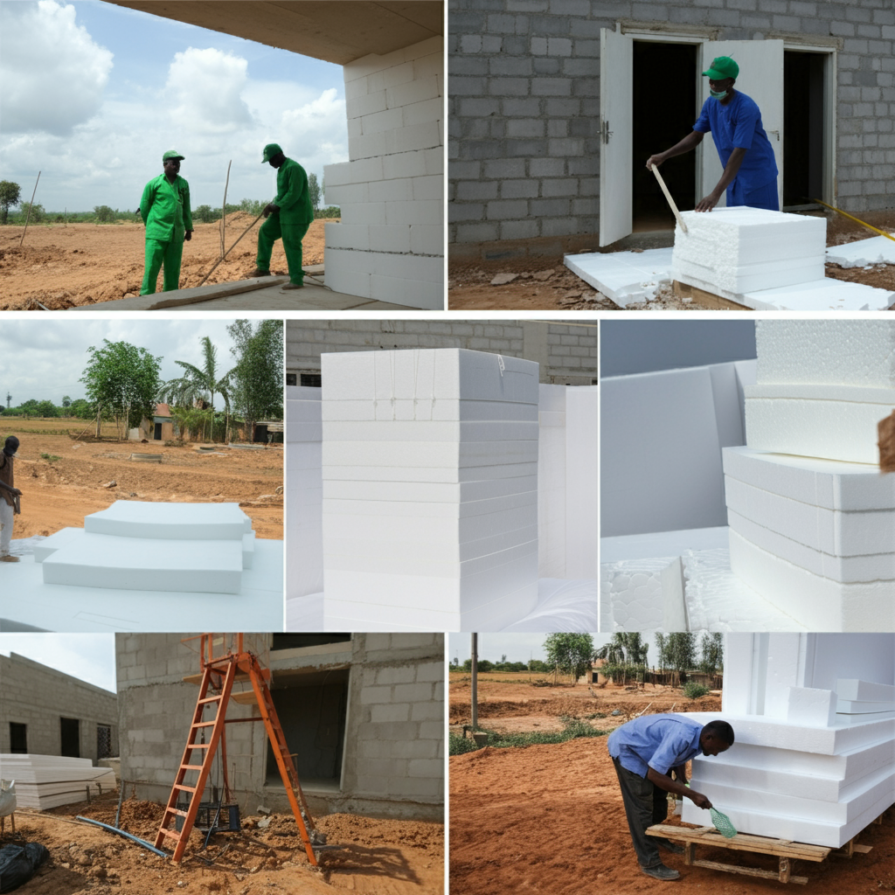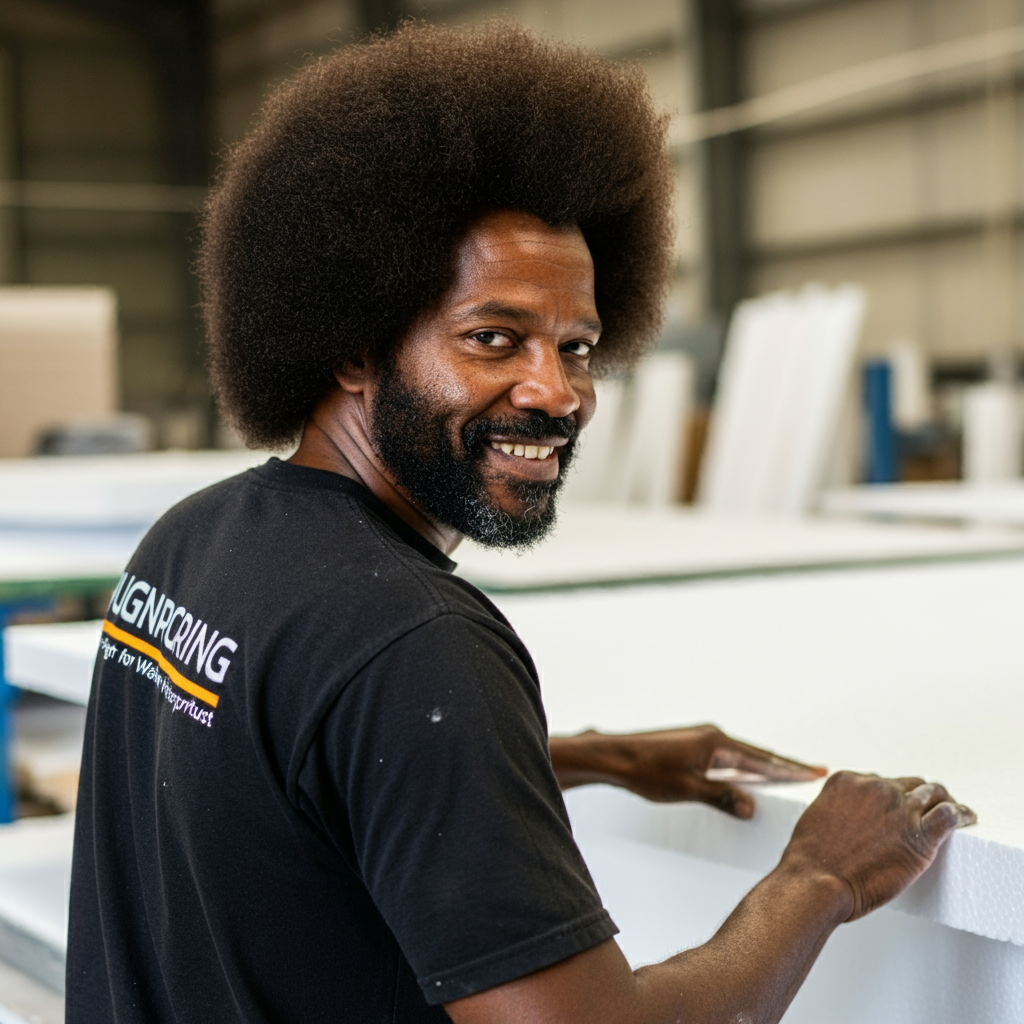- temmuz
- September 23, 2024
Introduction
Expanded Polystyrene (EPS) is revolutionizing the Nigerian construction industry due to its versatility, affordability, and sustainability. As Nigeria continues to experience rapid urbanization, the demand for cost-effective, energy-efficient, and durable building materials is increasing. EPS offers a practical solution that meets these needs, making it a preferred choice for architects, contractors, and developers in the country. This article explores EPS’s applications in Nigerian construction, its key benefits, and its role in promoting sustainable building practices that can address the nation’s housing challenges.
What is Expanded Polystyrene (EPS)?
Expanded Polystyrene is a lightweight foam material made by expanding polystyrene beads using steam and heat. The final product consists of about 98% air, making it lightweight and highly effective in insulating buildings. EPS has gained traction in Nigeria due to its suitability for the local climate and cost-conscious construction methods.
Key properties of EPS particularly relevant to the Nigerian market include:
Thermal Insulation: With average temperatures ranging from hot and dry in the north to humid in the south, thermal insulation is crucial in Nigerian homes and offices. EPS has a low thermal conductivity of 0.030 to 0.040 W/mK, effectively reducing heat transfer. This property minimizes the need for excessive cooling in hot climates, helping households and businesses save on energy bills.
Moisture Resistance: EPS resists moisture, a vital feature in Nigeria’s humid coastal regions where traditional insulation materials like fiberglass may degrade. EPS helps prevent mold growth and maintains its insulating properties, making it ideal for use in high-humidity areas such as Lagos and Port Harcourt.
Lightweight and Easy to Transport: Nigeria’s infrastructure challenges often make transporting heavy materials difficult. The lightweight nature of EPS—1% the weight of concrete—reduces transportation costs and logistics issues, making it ideal for remote locations with less developed infrastructure.
Applications of EPS in Nigerian Construction
In Nigeria, Expanded Polystyrene is used in a variety of ways across residential, commercial, and industrial projects. Below are some of its most prominent applications:
Insulation: EPS is widely used for wall, roof, and floor insulation. It helps maintain comfortable indoor temperatures, reducing the need for air conditioning in the heat of northern Nigeria or cooling in coastal cities. This is especially useful in large commercial buildings and high-rise apartments where energy costs are significant.
Affordable Housing Solutions: In response to Nigeria’s housing deficit, EPS has been adopted in the construction of low-cost housing. Projects by both government and private developers have used EPS panels to build durable, affordable homes. These structures offer better insulation and structural integrity compared to conventional methods, helping alleviate the housing crisis in areas like Abuja, Lagos, and Kano.
Structural Panels (SIPs): EPS is used as a core material in Structural Insulated Panels (SIPs), which are becoming popular in Nigeria for their strength and ease of installation. SIPs can be used to build schools, clinics, and residential homes faster than traditional methods, reducing labor costs and building time.
Noise Reduction: In Nigeria’s bustling cities, noise pollution is a growing concern. EPS has excellent sound-dampening qualities, making it suitable for soundproofing residential and commercial buildings near busy roads or industrial areas.
Benefits of Using EPS in Nigeria
The use of Expanded Polystyrene in construction offers several critical advantages that align with the needs and challenges of the Nigerian market:
Energy Efficiency: One of the major benefits of EPS is its ability to significantly reduce energy consumption. In Nigeria, where electricity costs are high and power outages are frequent, EPS insulation helps lower the need for air conditioning and cooling systems. Homes and businesses built with EPS panels can maintain comfortable indoor temperatures with less energy consumption, contributing to lower utility bills and greater energy efficiency.
Affordability: Given Nigeria’s need for affordable housing and infrastructure, EPS is an economical alternative to traditional materials like brick and concrete. The initial costs are competitive, but the long-term savings on energy and maintenance make it a cost-effective option. EPS’s lightweight nature also reduces transportation and handling costs, contributing to its affordability.
Sustainability: Sustainability is a growing concern in Nigeria’s construction sector, especially with the country’s environmental challenges. EPS is recyclable, and its production has a lower carbon footprint compared to traditional building materials. Additionally, using EPS helps reduce deforestation by providing an alternative to wood-based construction materials.
Challenges and Opportunities for EPS Adoption in Nigeria
While the benefits of EPS are clear, there are several challenges to widespread adoption in Nigeria:
Awareness and Education: Despite the growing use of EPS, many contractors and homeowners are still unfamiliar with its benefits. Efforts are needed to educate stakeholders about the advantages of EPS and how to properly use it in construction.
Local Production and Supply Chain: Currently, most EPS used in Nigeria is imported, which can affect costs and availability. Establishing local production facilities could help make EPS more accessible and affordable for construction projects throughout the country.
Government Support and Regulation: The Nigerian government could play a significant role in promoting the use of EPS by offering incentives for its adoption and developing industry standards. This could ensure that high-quality EPS products are used in construction and eliminate substandard materials from the market.
Conclusion
Expanded Polystyrene (EPS) has proven to be a game-changer in Nigeria’s construction sector, offering a sustainable, affordable, and energy-efficient alternative to traditional building materials. As urbanization continues and the demand for housing grows, EPS has the potential to shape the future of Nigerian construction by meeting the needs of affordable housing, energy efficiency, and sustainability. With the right support from the government and industry, EPS could become a staple in Nigeria’s building practices.

